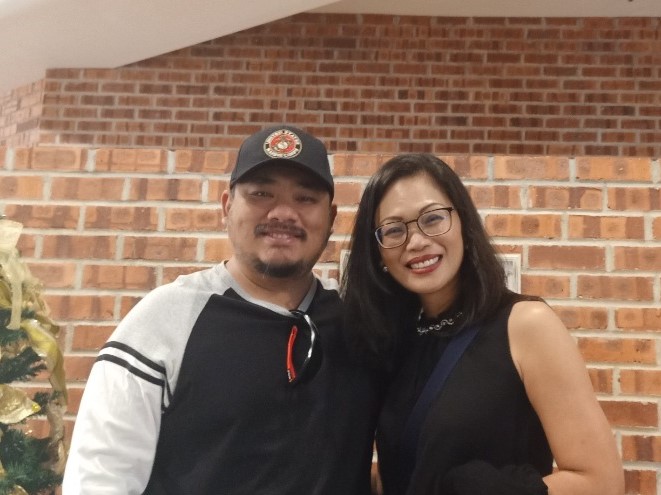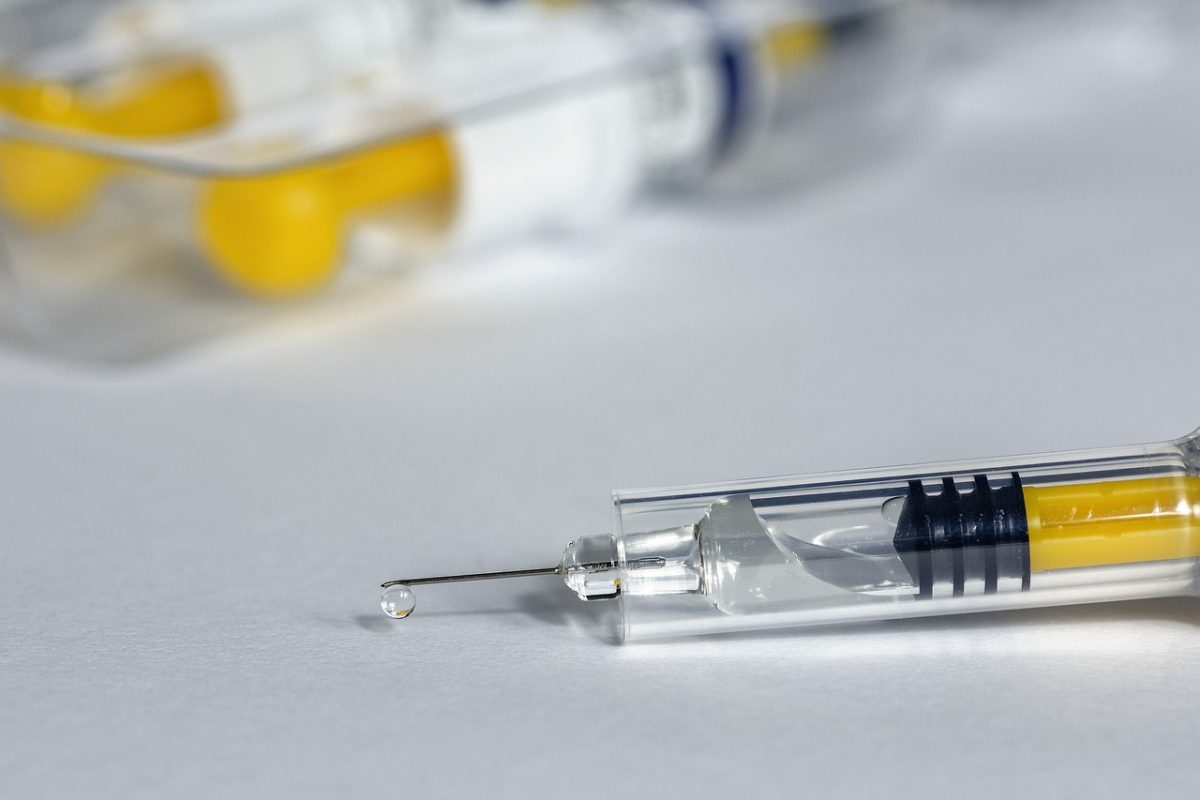KUALA LUMPUR, Dec 31 — Paul Sebastian Peter is thankful that he managed to get biologics from a public hospital for psoriasis, an auto-immune disease that not only affected his skin but his joints too.
The 46-year-old man, who lives in Petaling Jaya, Selangor, and runs a learning centre for children with learning disabilities along with his wife, used to be on crutches and a wheelchair before he took biologics, a new treatment, over the past five to six years.
Paul was given biologics in the private sector from 2009 to 2010, but he stopped the treatment because one jab cost RM6,000; he had to take shots every one to two months. He paid for it out of pocket.
Then he went to a public hospital in the Klang Valley, where he went through a range of treatments like topical creams, phototherapy, and oral medication, before finally taking various biologics four years later. At the Ministry of Health (MOH) facility, Paul only pays RM5 per visit, without getting charged for treatment.
Paul said his mobility has vastly improved with biologics, as he can walk more than 10,000 steps a day, go cycling, and even play light sports like tennis. He doesn’t have to wear long sleeves anymore as his skin condition has improved. He no longer has to hide his psoriasis, a chronic inflammatory skin disease, which causes red and itchy scaly patches on the body.
The former engineer is on the latest biologic that cost about RM6,000 per shot, taken every two months. He just took a jab about two weeks ago, but his biologic treatment is not assured for next year due to limited supply of the expensive drug in government hospitals. His physician must make applications to fund his biologic treatment every year.
“The hospital told me they’re trying to look for the next jab for me,” Paul told CodeBlue in an interview. “If they don’t have, it’s back to conventional treatment.”
When asked if he was afraid of having to revert to conventional treatment, Paul said: “I would be lying if I say there’s no fear. But at the same time, I’m at a place now where there’s less stress. If there’s a flare-up, I learn how to treat it better.”
Insufficient Government Funding For Biologics

A dermatologist at a government hospital said public health care providers usually try conventional systemic treatments first for people with moderate to severe psoriasis, such as phototherapy, methotrexate, acitretin, and cyclosporine, before considering biologics if those older treatments don’t work for a psoriasis patient.
Phototherapy, according to the dermatologist, is challenging to access for working people, especially for those in big cities, as they would have to take two to three half-days off a week, since government hospital services are not open during the weekend.
According to the Malaysian Psoriasis Registry report 2007-2016, a total of 17,071 patients with psoriasis in Malaysia were registered in the registry. The majority had mild to moderate conditions, while 15.6 per cent had severe psoriasis with more than 10 per cent of their body surface area affected. Psoriasis affects about 2 per cent to 3 per cent of the world’s population.
“The funding is not enough,” the dermatologist told CodeBlue on condition of anonymity. “So that’s the challenge in the government sector.”
He noted that biologics for psoriasis cost about RM30,000 to RM50,000 a year, depending on the type of drug and support from pharmaceutical companies that can sometimes offer lower prices, to say RM20,000 annually. Biologics, he said, are not a cure, but can control symptoms of psoriasis, a long-term disease.
Because funding for biologics is so limited in the public health sector, the innovative treatment is rotated between government hospitals on an annual basis, with one hospital getting it this year, and then another the next year. This is due to the very limited central budget provided for biologics.
The dermatologist said even one psoriasis patient of his was willing to give up his shots to another patient, after his condition improved significantly from one year’s treatment on biologics that greatly reduced spots on his skin.
“He was advised to continue because ultimately, we know that if we stop it, his condition is going to flare up,” the dermatologist told CodeBlue.
“In a few months, you can see significant improvement. Even one injection, you see significant improvement. It’s very life-changing. If you have psoriasis, you’ll understand. You can’t understand how patients feel. You will never ever understand how they feel.”
The dermatologist listed six funding sources for a psoriasis patient to get biologics from the government sector: a hospital department budget; the Public Service Department (JPA) for current or retired civil servants; state government funding for state employed civil servants; the Tabung Bantuan Kebajikan under MOH; zakat for Muslims; and samples from pharmaceutical manufacturers.
Typical health insurance doesn’t cover biologics in the private sector, unless they are admitted for very severe disease, but that also only allows them a few doses, as the insurance covers post-admission care of up to a maximum of 150 days.
About 30 per cent of the anonymous dermatologist’s psoriasis patients on biologics are funded by their hospital budget, with the remaining funded by alternative methods as described above, including out-of-pocket payments where the patient pays the nominal RM5 fee for consultation at public hospitals, but full price for biologics. This, he said, is slightly cheaper than the private sector.
There is no fixed budget in government hospitals for biologics. Each department is instead given a fixed amount of money to spend for the year, with the head of department given the discretion to decide what treatments to purchase to cover a certain number of patients within their allocation.
“Every year, the budget is cut. Whatever you get for last year may not be enough for this year. The budget is being cut, but patient numbers are increasing. When the economy is not good, you get more patients in the government sector,” the dermatologist lamented.
He said most applications to JPA for biologics for psoriasis are approved; annual applications must be made for one year’s supply that can be given continuously to civil servants every year. Retired government workers only need to apply once to get supply for as long as they’re alive. Sometimes, though, there can be delays by up to three months to get approval from JPA for biologics.
As for the Tabung Bantuan Kebajikan, the dermatologist said psoriasis patients are given too short a period for biologics, just three to six months’ supply. Frequent funding reapplications are needed and patients are not guaranteed continuity of treatment.
Zakat funds, particularly in higher income states like Selangor, typically give psoriasis patients one year’s supply or less, with approval taking three to four months for annual applications. The amount of treatment is not fixed.
“So if you only get one injection, I don’t use it. I ask them to reapply. I believe if you want to go for biologics, go for at least a year. You experience one year of clear skin, and you have a good one year,” said the dermatologist.
As for biologics samples given by drug companies for doctors to get clinical experience with new drugs, which can be given to one or two psoriasis patients for either six months or a full year, the dermatologist said process dictates that physicians must apply for approval from MOH since these latest treatments are not listed in the Blue Book, the drugs formulary that lists medicines provided in MOH facilities.
The dermatologist urged public health care administrators to understand psoriasis, describing it as a “very debilitating” condition that harms one’s psychosocial wellbeing. Psoriasis is a systemic disease that affects the joints and nails too, and in the long run, carries increased risk of heart disease.
“I have one patient whose mother is only making less than RM5,000. Because of psoriasis, for one year, her son couldn’t go out of the house. He had to defer school. He was in depression.
“The mother now die die wants to get biologics for her son. Biologics a month is equivalent to her salary. Die die, they’ll do that as well. You know how much it affects the patient and family members? The kid is 21 years old.”
Government Hospital Progressed Over The Years

Sofia Lovi, who has been going to Kuala Lumpur Hospital (HKL) since she was diagnosed with psoriasis at age 12, said treatment and facilities at the public hospital for psoriasis have improved over the years.
The doctors at HKL, she said, are “really good”, with many specialists.
“In terms of medical assistance, they’re accessible to the public. Whether the public is convinced with what the government is doing, that’s another thing,” Sofia told CodeBlue in an interview.
“Some patients have to wait a couple of months for appointments. Some people can wait, but for emergency cases which require immediate attention by dermatologists, you can go forward and fix a quicker day of appointment.
“They do prioritise those going through serious conditions. It’s not like they have a lackadaisical attitude. The doctors empathise with patients.”
Sofia, who currently works in human resources at a bank in Kuala Lumpur, said her senior management were very empathetic with her psoriasis struggle, after she was hospitalised for 10 days during a bad episode last month. It took her more than a month to recover.
“My Group HR head came to visit me in hospital. Someone who empathises with workers is a value you should see in a leader.”
In 2014, Sofia was completely bed-ridden and couldn’t work for a year, causing depression and anxiety. She has psoriatic arthritis with deformed fingers on her left hand that limits her typing ability, besides not being able to turn her neck.
Stigma and discrimination against psoriasis patients is rife in Malaysia, as Sofia described people who refused to sit beside her in public because of the misconception that psoriasis was a contagious disease.
HKL advised her last month to go on biologics because of her serious condition, but Sofia has yet to decide if she’ll take it because she doesn’t know how her body will react to new drugs.
Sofia decided to step up five years ago to increase public awareness about psoriasis, going on public speaking engagements, collaborating with HKL on psoriasis campaigns, and even joining a beauty pageant in 2019. Sofia has also joined a campaign to make biologics more accessible to psoriasis patients in the public sector.
The government allocated RM6 million for biologics in Budget 2021. However, it is uncertain how much has been channeled to psoriasis treatment.
“It’s difficult because the allocations are not enough for people who should go on it,” Paul said. “So they have to consider case by case. If a patient continues to show good response to it, if they take it away, what will happen to the patient’s quality of life?”









